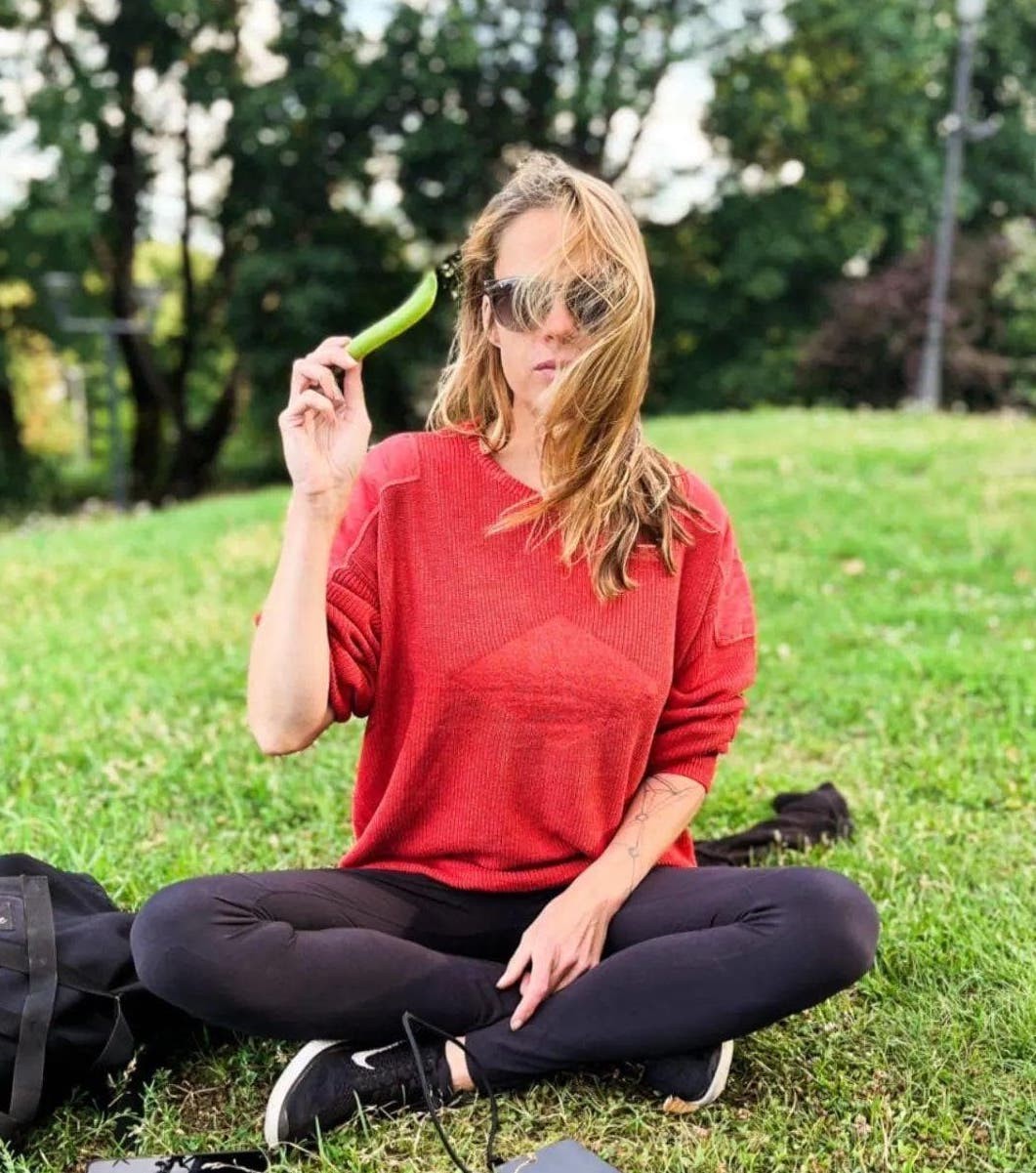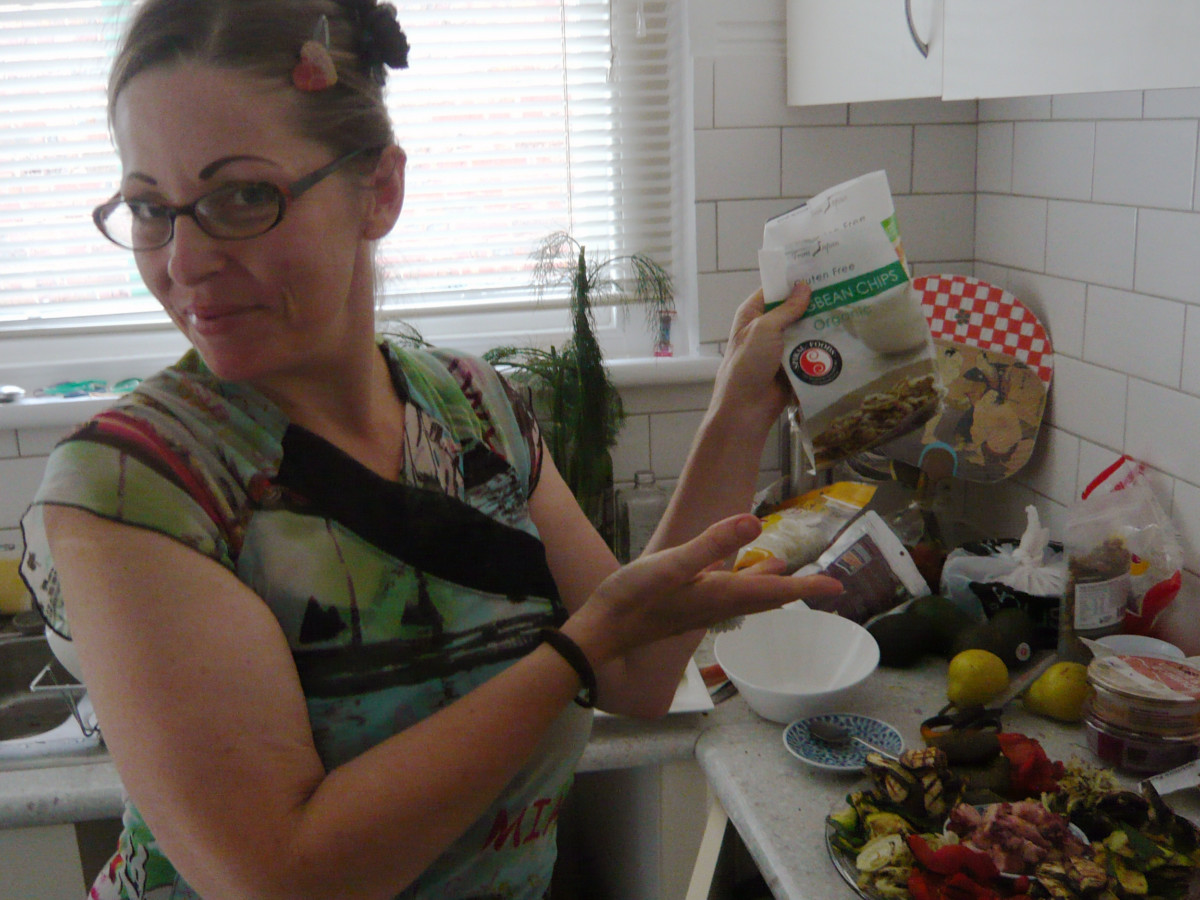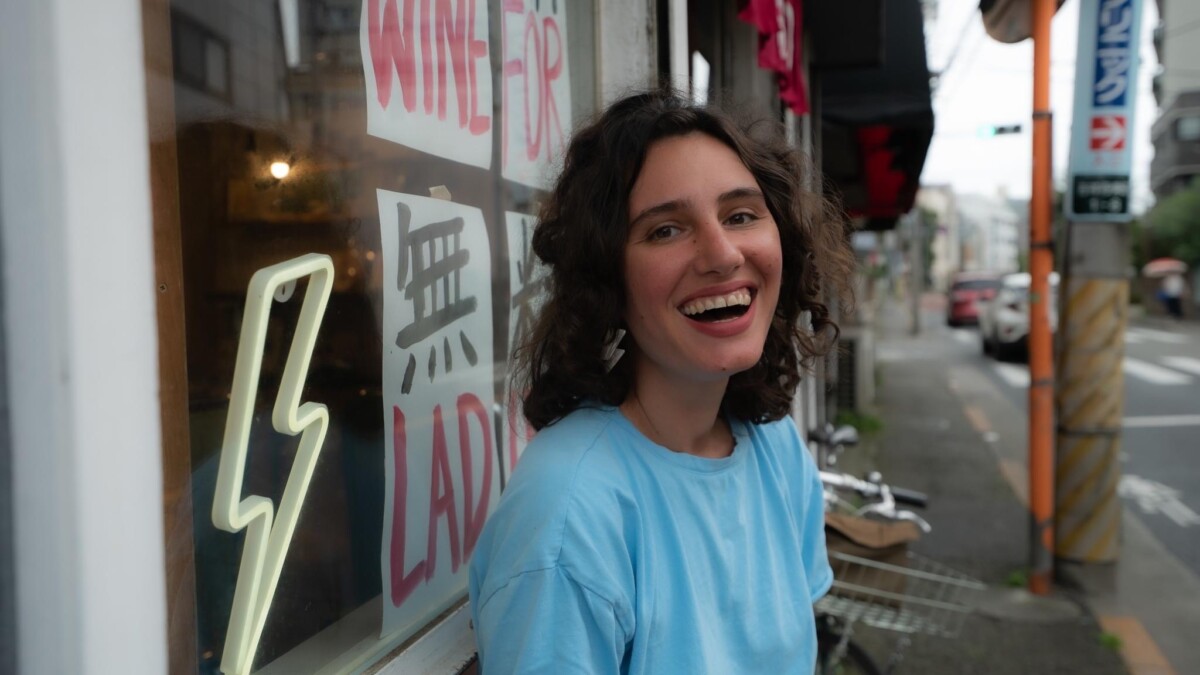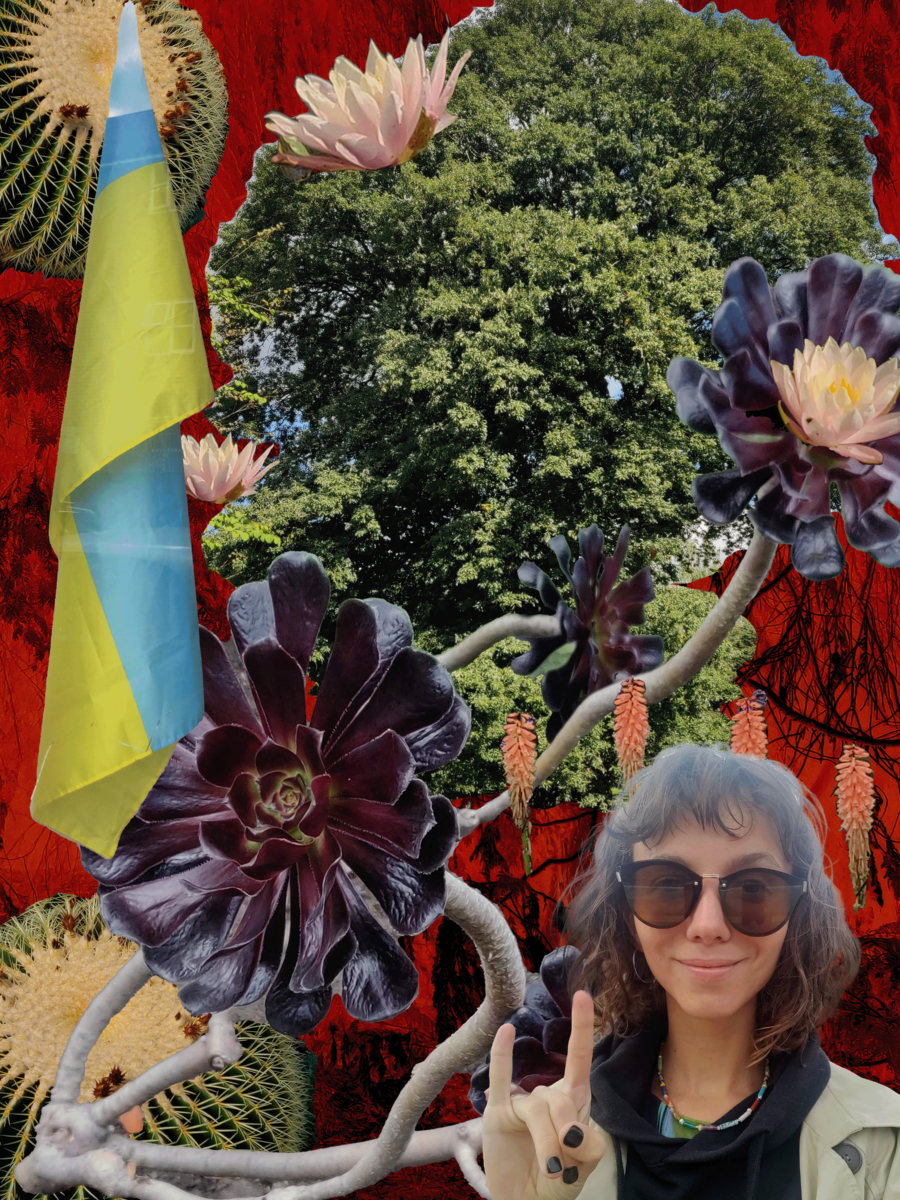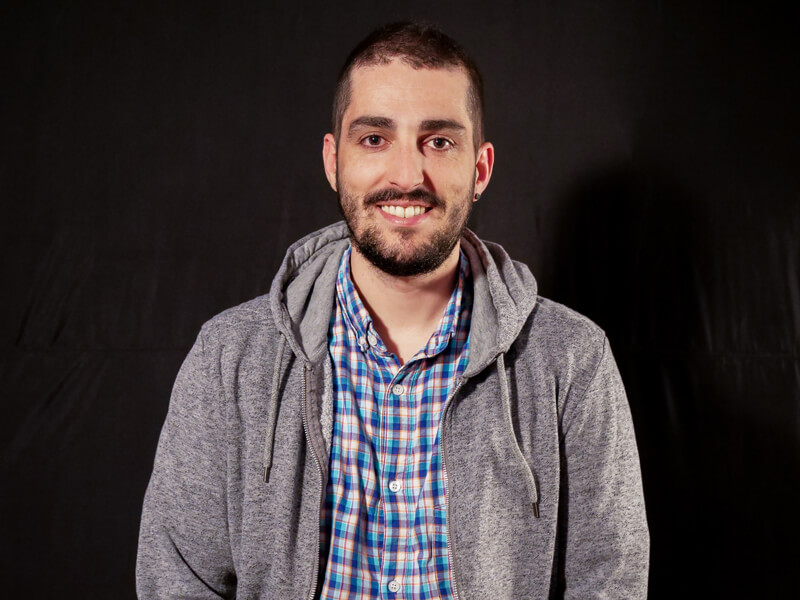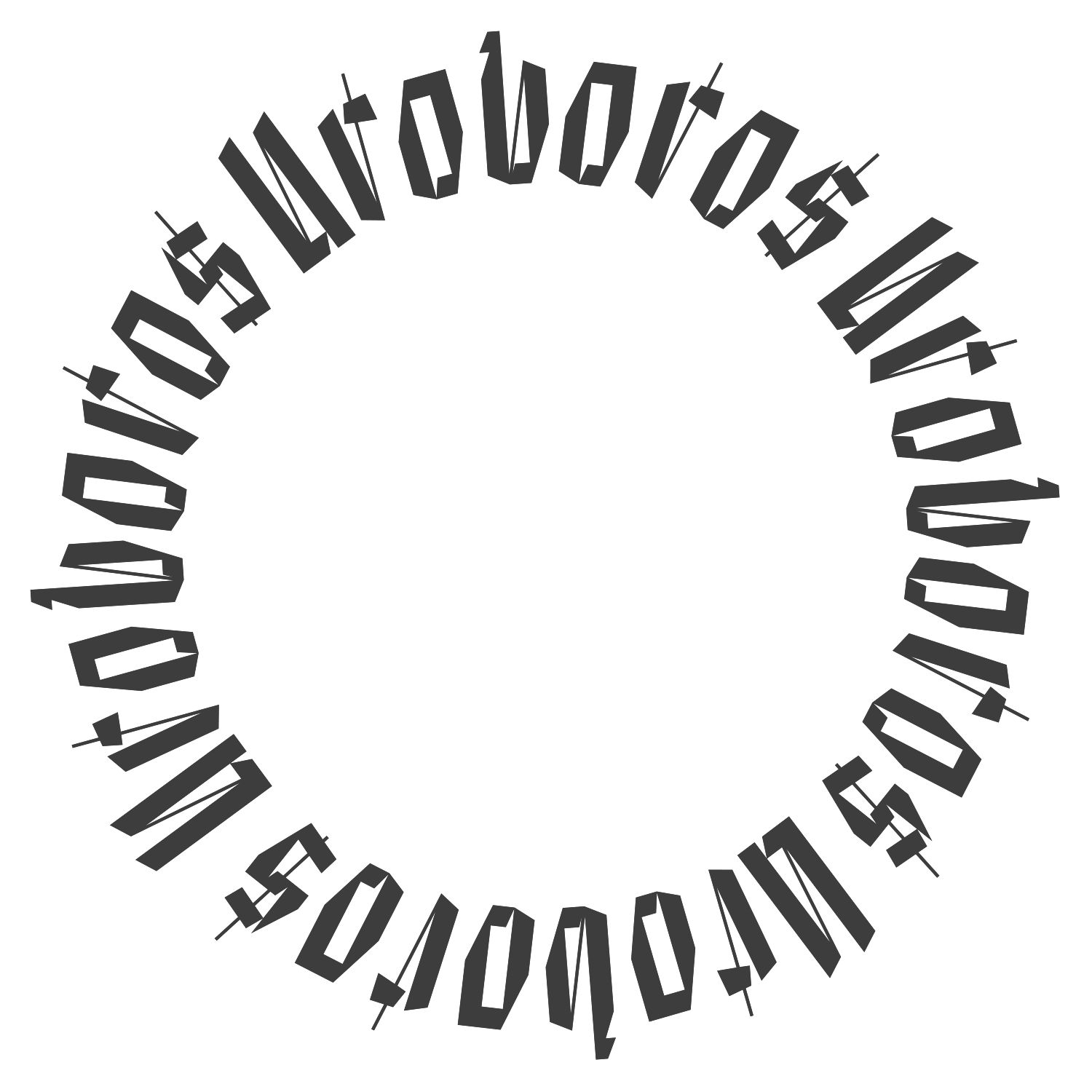
Feral Gift
What does eco-social change mean in our diverse personal contexts? How does it feel, smell, sound, taste like?
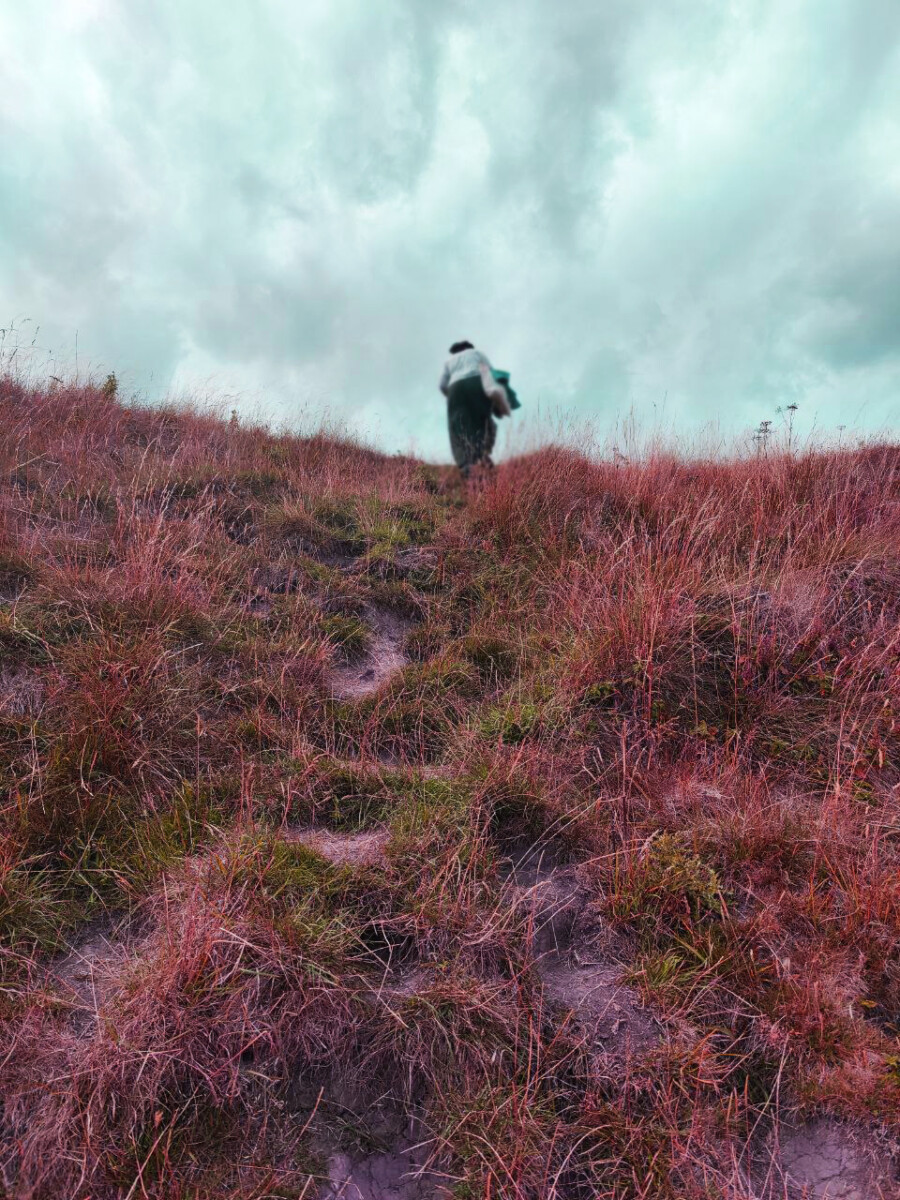
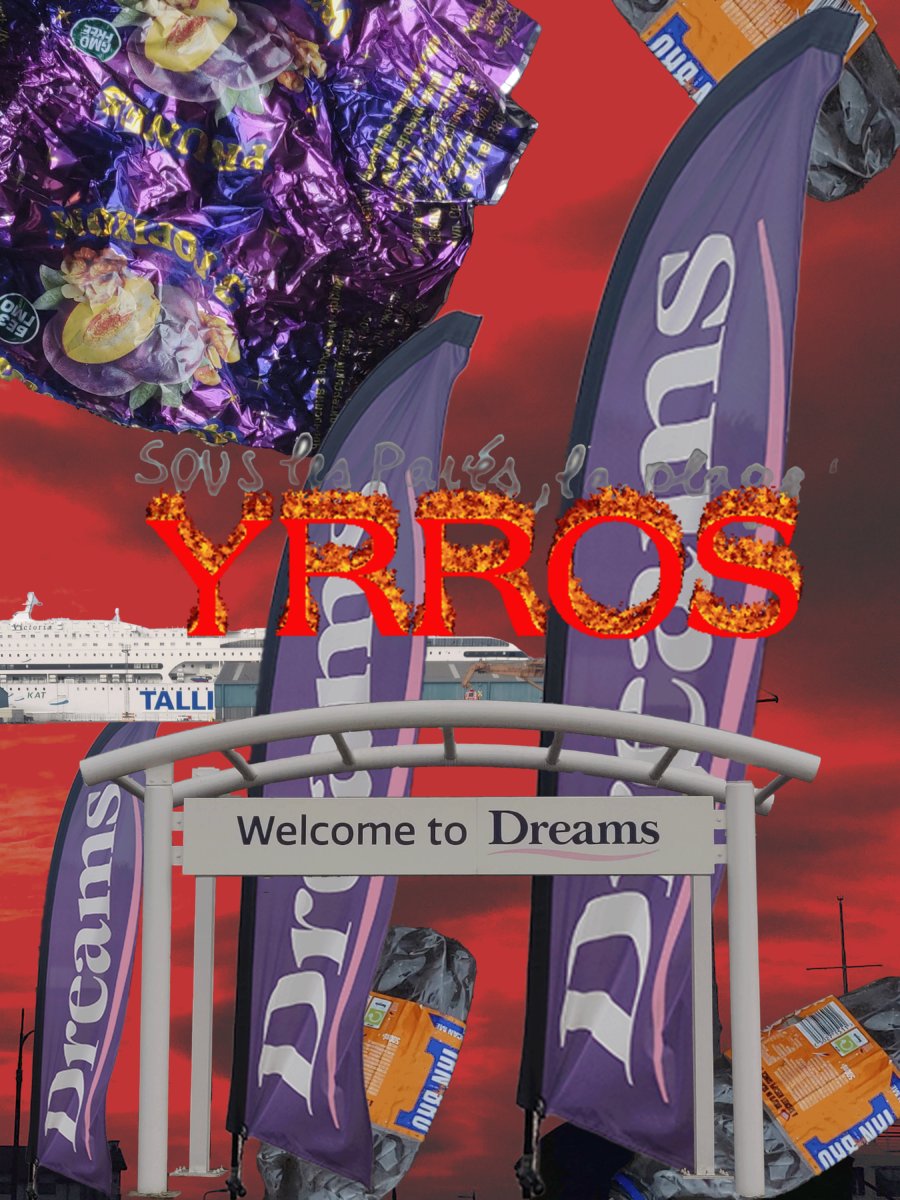
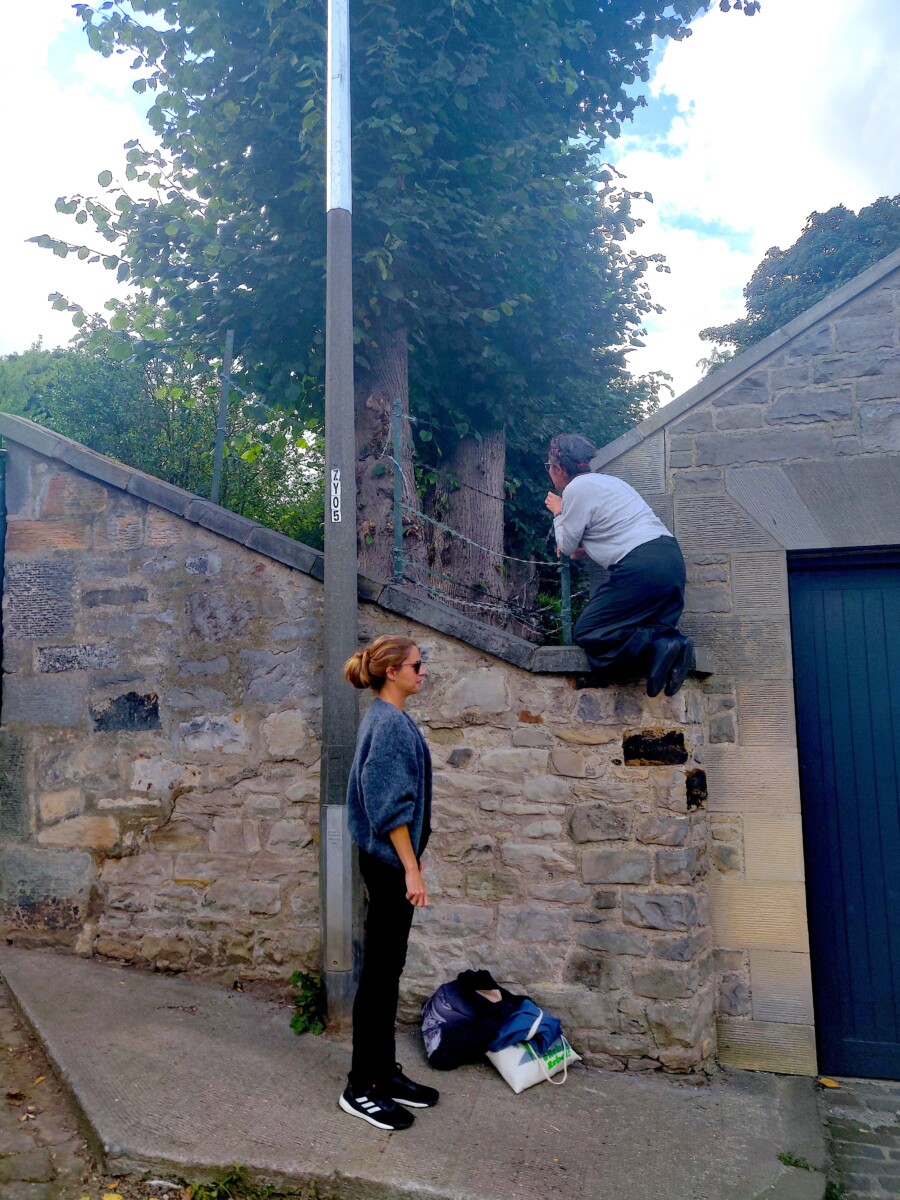
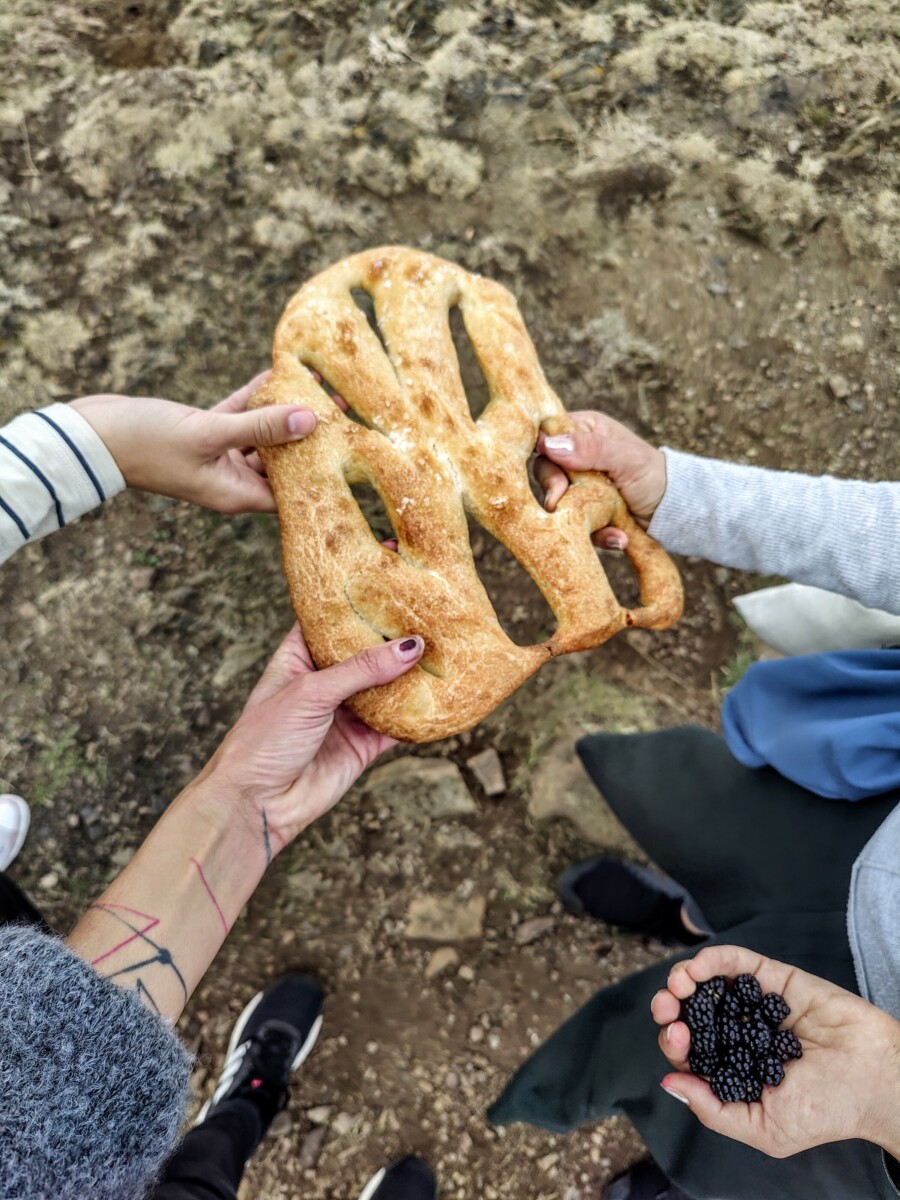
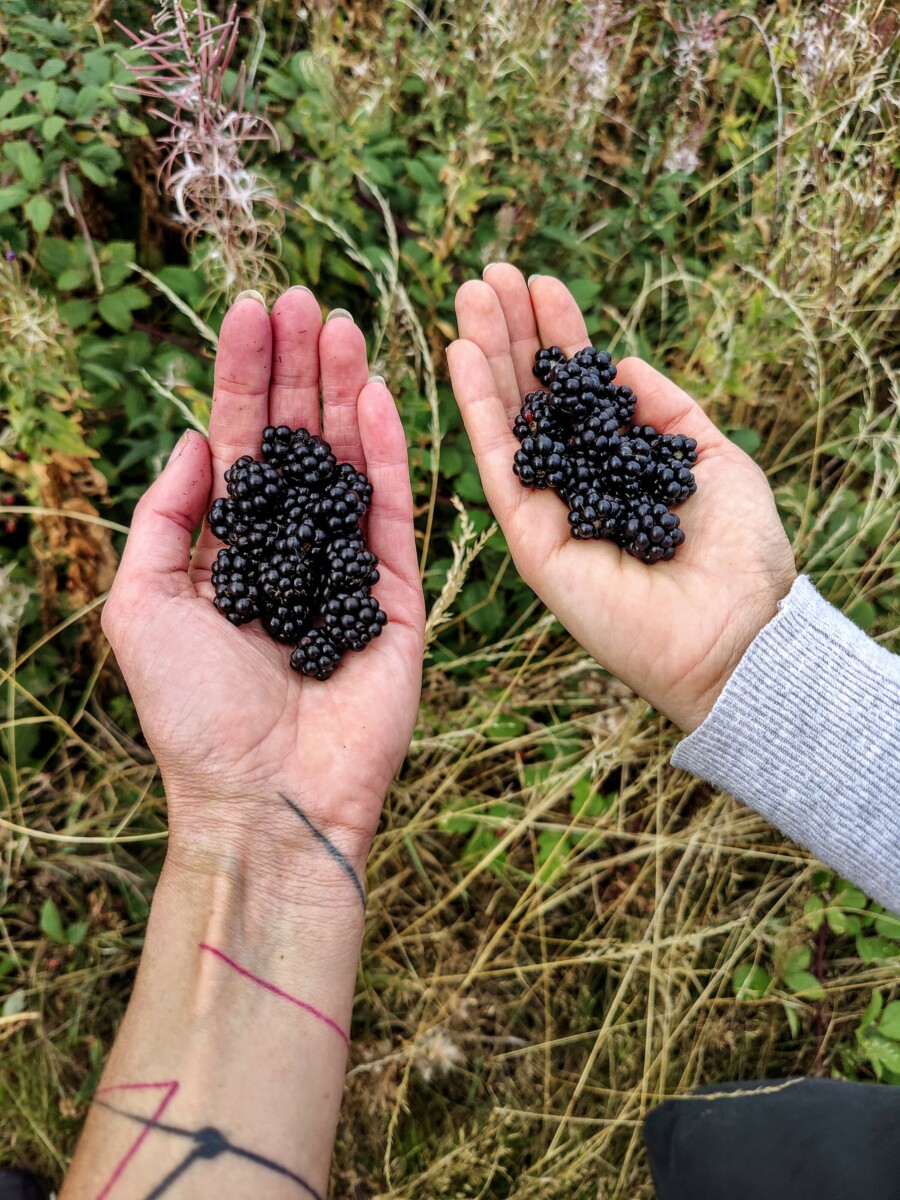
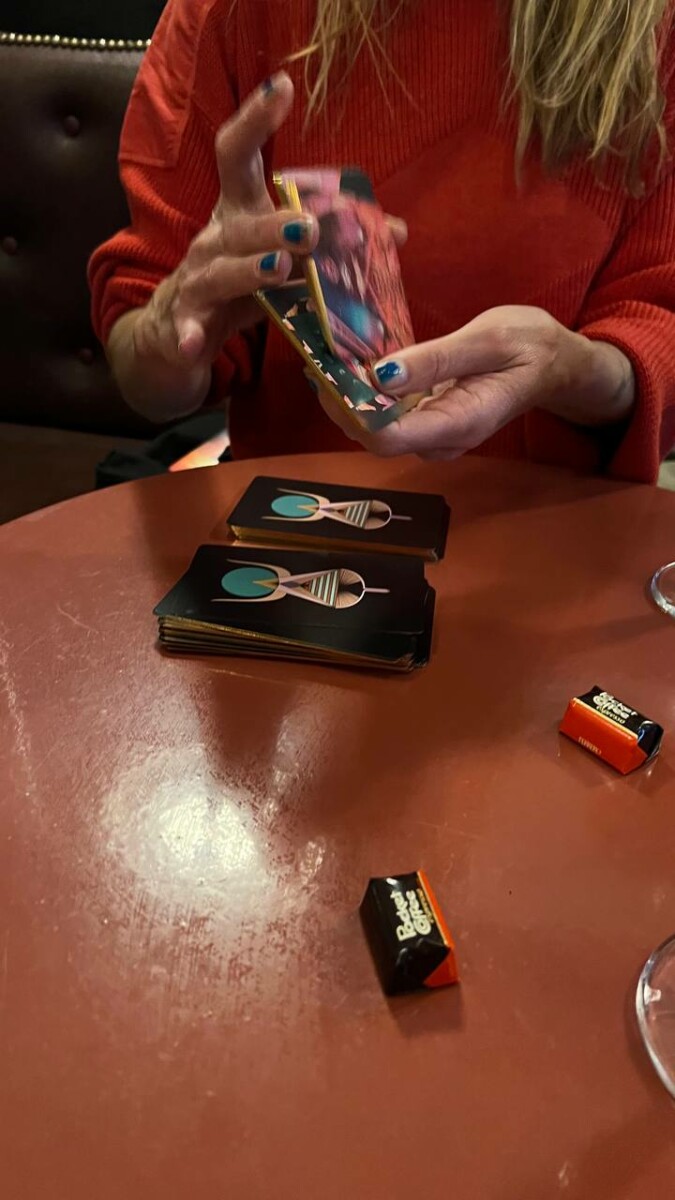
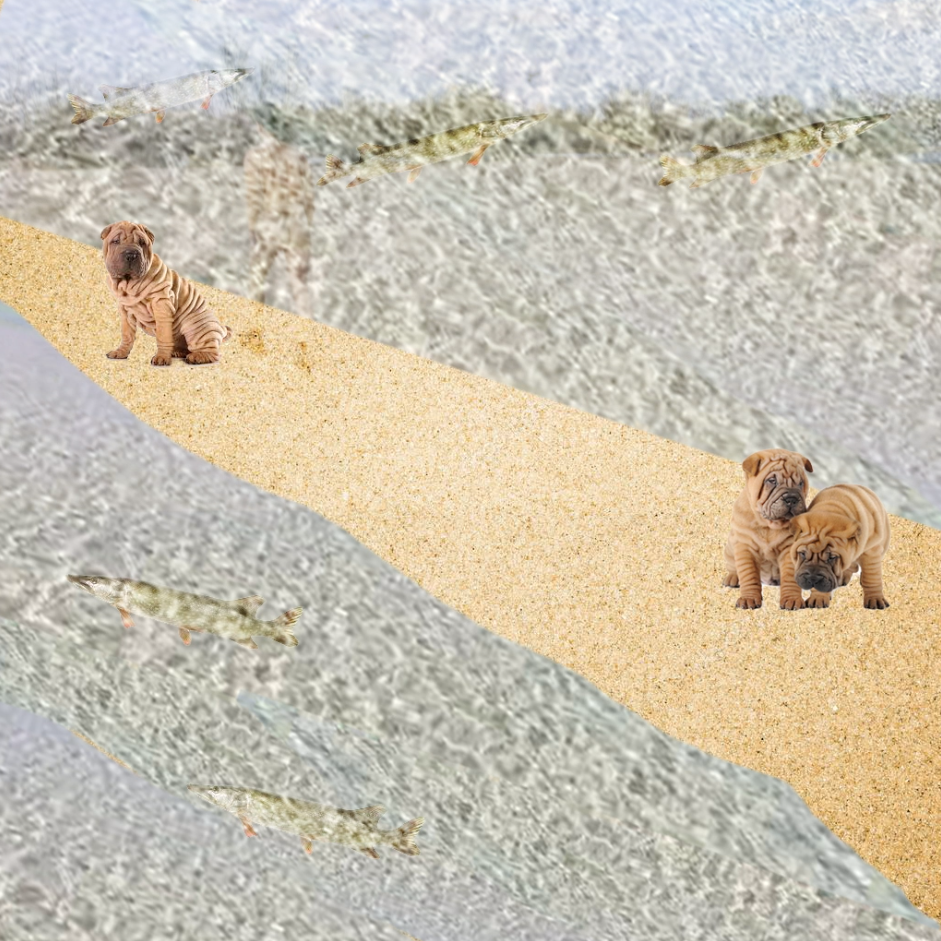
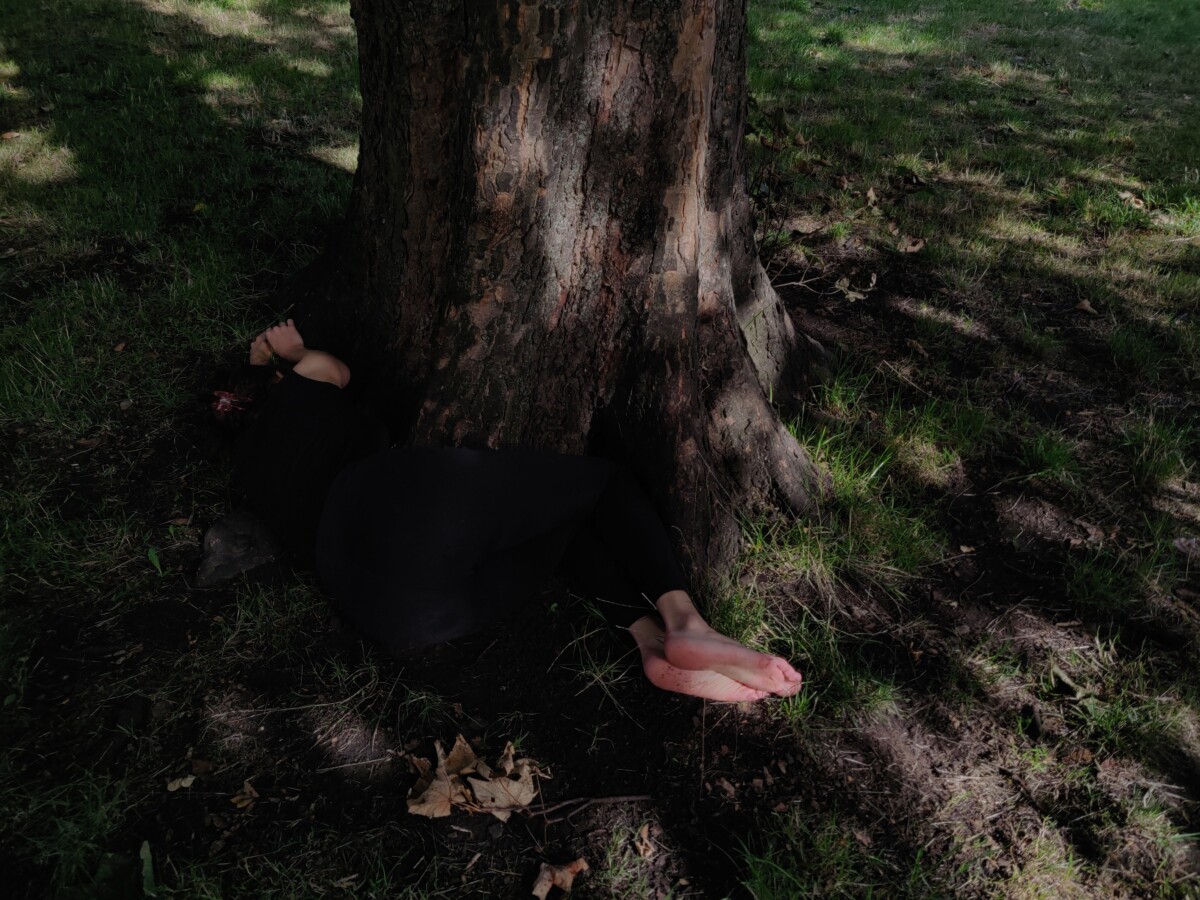
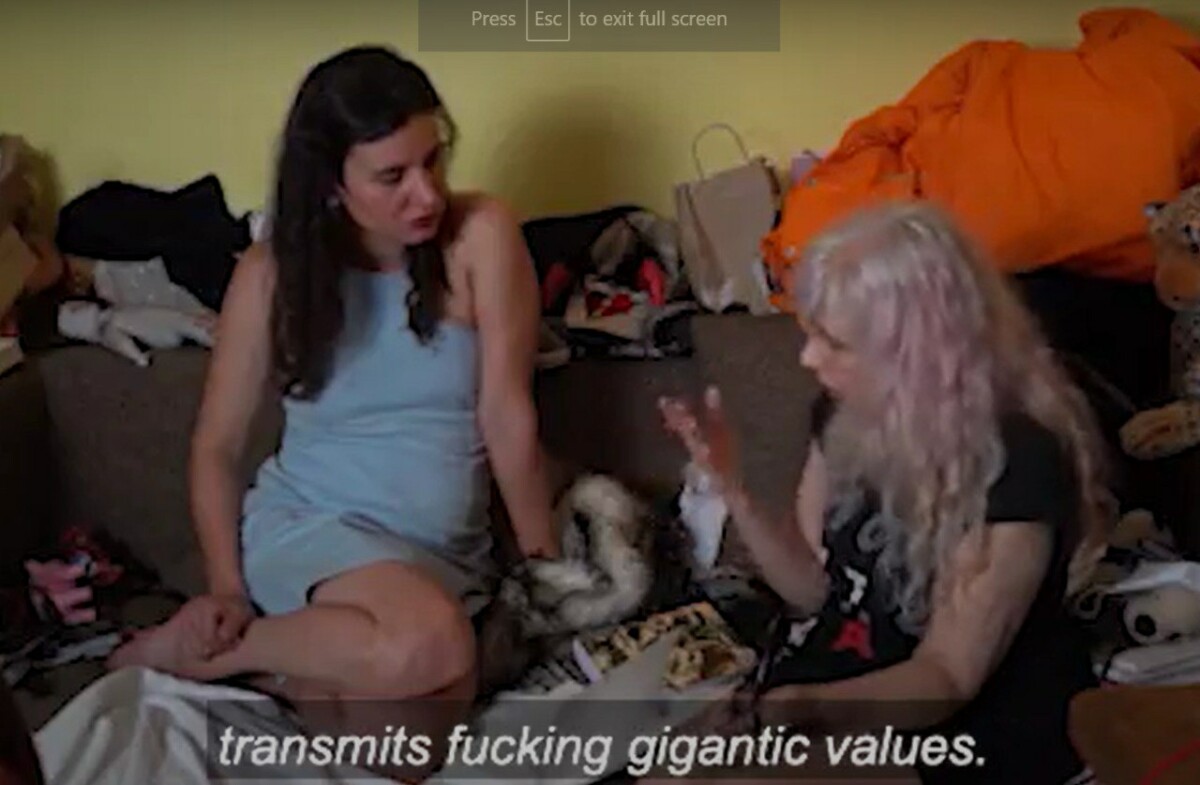
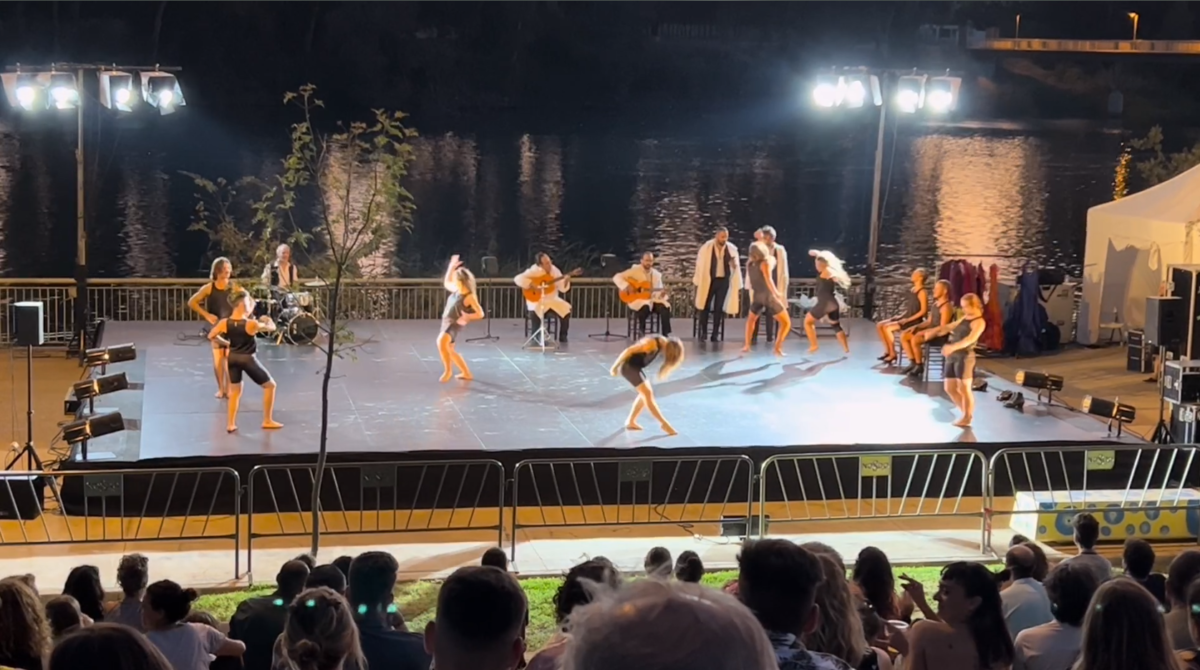
This sharing session invites all Uroborosians to engage with The Feral Gift Loop – a co-creative experiment in shared ways of understanding, doing, and becoming eco-social change.
The Feral Gift Loop has been a six-week process of performative storytelling, where six creative contributors experimented with their personal feelings and meanings related to eco-social change. Inspired by feral approaches to design research and the Fluxus tradition of scores, the Loop participants explored what something as grand and complex as eco-social change could possibly mean in their diversely situated – local, cultural, personal, intimate – contexts.
Guided by selected eco-social narratives (books, essays, poems, songs), they devised and exchanged scores for situated exercises, which they performatively enacted in their current spaces: a kitchen in Helsinki, an art space in Tokyo, a living room in Colombia, a forest patch in Umeå, a mountain in Edinburgh, a cottage in Bohemia, an elevator in Newcastle, a home in Seoul, a seacoast near Seville…
Throughout this process, the six creatures explored theoretical eco-social narratives through very concrete, everyday-life and sensory-rich activities. They touched, smelled, tasted, listened to, and felt what eco-social transformation might possibly mean to each of them. Each of them documented their enactments in various formats, including videos, photos, short stories, poems, drawings, blackberry cakes…they shared this documentation with each other as a gift.
At the Feral Gift Exchange co-creative session, the authors will share these gifts with the Uroboros festival audience: showing the videos, reading the short stories, and discussing how being feral – as artists, designers, researchers, creatures – can be meaningful in the contemporary eco-social situation. All festival participants are warmly welcome to join, listen, and share what eco-social change means to them, in their own personal, intimate, and otherwise situated contexts. The session hopes to open an informal conversation on what eco-social transformation may mean, to whom, where and why.
The Feral Gift experiment was proposed by Markéta Dolejšová (Czech Republic/Finland) and Danielle Wilde (Australia/Sweden/Denmark) and brought to life together with Iryna Zamuruieva (Ukraine/Scotland), Martyna Miller (Poland), Ann Light (United Kingdom/Sweden), Felipe G. Gil (Spain) & the Open Forest Collective (Jaz Hee-jeong Choi – South Korea/Australia, Andrea Botero – Colombia/Finland, Markéta Dolejšová – Czech Republic/Finland).
Connected events:
Markéta Dolejšová
Markéta is a design researcher and curator experimenting with embodied, relational ways of knowing and doing, often in multi-species settings. She currently serves as a postdoctoral research fellow at Aalto University - School of Arts, Design and Architecture (FI), working with the CreaTures project (Creative Practices for Transformational Futures). She has co-founded several art/design research initiatives, including the Open Forest Collective, the Feeding Food Futures network and the Uroboros festival.
Danielle Wilde
Danielle is a professor of Design for Sustainability at Umeå Institute of Design, Umeå University, Sweden, and Associate Professor, Sustainability Transitions, at SDU, Denmark, where she leads research into food system transformation, and coordinate local efforts on the H2020 FUSILLI project. Across both institutions, her research and teaching raise questions around the social, ecological and material sustainability of human action, and the roles that design might play therein. Danielle uses experimental methods to examine how embodied engagement with the materiality of the world can assist people in thinking in new ways; develop new possibilities for future action that can be implemented today; alternative responses to challenges we face, whether these are planetary in scale or concern the nature within us. She uses performative and probiotic methods, participatory and speculative research through design, to open up new ways of thinking, through moving, making and doing. She undertakes pedagogical research, to infrastructure new roles for design in the twenty-first century, including through biodesign and designing with living things. Her work challenges the role of designer as a maker of things: products, cultural artefacts or services, positing that it is, rather, to examine relationships and dependencies, and do as little as possible; leverage participatory and co-creative design methods to help people to infrastructure their own agency, understand what they need to regenerate the world around them, and take action so that humans and non-humans alike might flourish. Much of this work is focused on food and more-than-human health.
Ann Light
Ann Light is a design researcher and interaction theorist, specializing in participatory practice, human-technology relations and collaborative future-making. Her 25-year research career has focused on the politics, ethics and agency of design, and especially co-design in communities, exploring social activism at neighbourhood level, investigating the design of sharing structures and questioning the boundaries of participation. Regarding the social and ecological as inextricably linked, over the last few years she has turned to consider climate collapse and the stress that current systems put on the planet, believing creative remaking of relations is needed for liveable futures and looking at ways that socially engaged art and design can find potential in difficult places and offer visions of fairer worlds. She is currently co-leading research on the European Union project Creative Practices for Transformative Futures (CreaTures).
Jaz Hee-jeong Choi
Jaz Hee-jeong Choi is the Director of the Care-full Design Lab and Vice-Chancellor’s Principal Research Fellow at RMIT, Australia. In her transdisciplinary research and practice, Jaz recognises ‘care’ as the core of transformational encounters in different places – ranging from cities as complex cyberphysical networks to forests as moving creatures. She builds on this to explore, often through creative-critical engagements, how design in varying forms and scale can be done care-fully. Her work is often playful, multisensory, and participatory, and starts from the margins to understand, imagine, and co-create just liveable futures. Currently, she is exploring care-full design across three inter-related domains: self-care and mutual aid in different cultural and more-than-human contexts; creative methods for research and engagement, and; co-creative transformation. Giraffes, what wondrous creatures.
Martyna Miller
Martyna Miller is an interdisciplinary artist, director and anthropologist, studied at the University of Warsaw and University of Performing Arts in Sarajevo, received her doctorate in fine arts at the University of Arts in Poznan. Co-founder of duo Polanki and TYNA collective. Since 2018, she has been co-running the DOMIE project in Poznań, an experimental endeavor on the border of art, architecture and social sciences. In her projects she explores the relationship between memory and body. Through memories and their reconstructions she creates methods to work with the mediality of experience. She is interested in the relationship between nature and community in the processes of healing, production and transformation. Her project are often long term investigations, gathering different groups and perspectives to search for collectively developed knowledges and experience communities. She uses video, performance, sound and more. Her works are often cycles, collections, gestures, fragments of broader explorations.
Iryna Zamuruieva
Iryna Zamuruieva makes images, writes, walks, organises and performs. Originally from the middle of the Ukrainian steppe, Iryna now lives by the North Sea coast in Scotland. Here she works with a sustainability organisation Sniffer on transforming organisations and places to flourish in the future climate. This involves leading climate change adaptation projects (with Adaptation Scotland), researching the role of creative practices in eco-social transformations (with CreaTures) and creating structures for collaborative, care-ful and non-hierarchical decision-making. In her independent practice Iryna explores multispecies relations from pigs and viruses to natures to walking and steppes & ecofeminism. In her recent work she dreams to see the steppe again with Dr. Darya Tsymbalyuk and imagines a dog opera with Dr. Kit Braybrooke.
Andrea Botero
Andrea Botero is a designer and researcher exploring technologies, services and media formats for collectives and communities. Through her research work she investigates how collectives come to understand the design spaces available to them and how designers could support more diverse infrastructuring processes around them. Andrea works as a Professor and Academy of Finland Research Fellow at the School of Arts, Design and Architecture at Aalto University (FI). She is also a conspirator at the design studio Suo&Co and Adjunct Professor at the Universidad de los Andes (COL).
Felipe G. Gil
Felipe works at ZEMOS98, a non-profit organization dedicated to cultural mediation. Felipe currently coordinates Commonspoly: an open source board game that fosters a culture of cooperation. He also coordinates Concomitentes UCIPediátrica, a 4 years project on how arts can help in an Intensive Care Unit for Children in a hospital. He also writes at elDiario.es about Internet culture and digital and socially engaged creativity.
